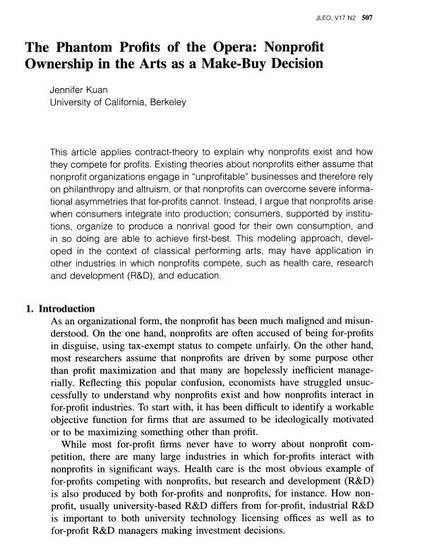
Article
The Phantom Profits of the Opera: Nonprofit Ownership in the Arts as a Make-Buy Decision
Journal of Law Economics & Organization
(2001)
Abstract
This article applies contract-theory to explain why nonprofits exist and how they compete for profits. Existing theories about nonprofits either assume that nonprofit organizations engage in "unprofitable" businesses and therefore rely on philanthropy and altruism, or that nonprofits can overcome severe informational asymmetries that for-profits cannot. Instead, I argue that nonprofits arise when consumers integrate into production; consumers, supported by institutions, organize to produce a nonrival good for their own consumption, and in so doing are able to achieve first-best. This modeling approach, developed in the context of classical performing arts, may have application in other industries in which nonprofits compete, such as health care, research and development (R&D), and education.
Disciplines
Publication Date
October 1, 2001
DOI
10.1093/jleo/17.2.507
Citation Information
Jennifer W. Kuan. "The Phantom Profits of the Opera: Nonprofit Ownership in the Arts as a Make-Buy Decision" Journal of Law Economics & Organization Vol. 17 Iss. 2 (2001) p. 507 - 520 Available at: http://works.bepress.com/jennifer-kuan/6/
